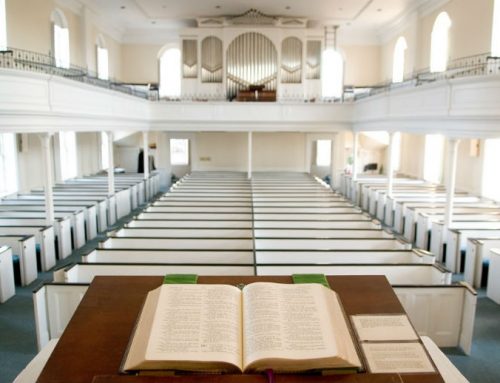Pastor’s Letter – April 2018
Dear Members and Friends of PCOL:
The theologian Emil Brunner once wrote that the church exists by mission as fire exists by burning. We, the church, exist for the sake of mission: showing the love of Jesus Christ not just by what we say and proclaim, but by what we do. And I want to share with you some new plans that will engage our congregation more deeply in mission: a job training program.
So, why a job training program? And for whom? As to why, first see above…but more specifically, this idea came out of our strategic planning process. We recognized that we need to impact the lives of people immediately around us, in our neighborhood; hence, The Community Well project, our attempt to be a “center for the community.”
But we also recognized that we want to have an impact on the lives of people in our whole county, beyond our own neighborhood. The issues that affect the average person just outside our doors are somewhat different from our neighbors to the south, who suffer more from economic distress and its attendant challenges. A job training program came out of our idea-generation process a few years back and it captured the imagination of some of our members, who’ve been working on it for lo these many months.
But, still on the question, “why”—many feel we need to do this not just to help people who need assistance getting a job, but for our sake as well. Let’s face it; we could use a bit more diversity—culturally, economically and racially. Many of us are very ignorant of what it’s like for the average family who lives in Trenton. A job training program is a way for us to gain fellowship with people who are not like us, and seek to share together the adventure of being human.
We have done a lot of research and discovered that a community-based program offers the best chance of success
So…that’s the why, now the “for whom.” This program will aim to provide jobs for those who are returning citizens—people transitioning from life in prison. Statistics show that the recidivism rate for such persons is, depending on the state, close to 50%, and the biggest predictor of not going back to prison is having a job. Many of us have felt we want to make an impact on the issue of mass incarceration, which we have in the past studied. Now is a chance for us to do something about it. And what an impact it could have: think of the cost of incarcerating a person (around $85,000 per year), vs. the gain represented by a working, tax-paying citizen. But of course, the real impact isn’t economic; it’s spiritual. You can’t put a dollar value on a life transformed.
We have done a lot of research and discovered that a community-based program offers the best chance of success, since it provides community support and mentorship for people who need to make this transition. We also discovered that Mercer County has a critical shortage of workers in the food and hospitality sector; there simply are not enough workers to fill all the jobs. For this reason, we are creating a culinary training program, to give people the skills they need to get a job in food service.
Our team has been at it for about two years. We have a plan, which involves three main elements: formal job training (we have an instructor from Mercer County Community College ready to teach the curriculum); mentorship and life-skills (we will give each trainee the support needed to succeed); and lastly, internships (each trainee will have a brief internship at one of our local restaurants, who are also on-board with the project.)
But now for the best news. We’ve been in a sort of chicken-and-egg dilemma for a long time. To get money to start, we need capacity (read: staff). To get capacity (and staff), we need money. Well, we resolved that dilemma by granting money from a fund we already have: The Lower Fund, whose charter is to “promote social good on a local, national and international level, in innovative ways.” The Session thought that was a no-brainer, to grant some seed money to get us going, which will then enable us to get more resources and grants to make the program sustainable.
We now have a consultant, Michelle Cash, who is working with our group to get us to the starting line. And we have a target start date: September 15.
Gulp. There, we’ve said it. September 15. Now we need your prayers to make that vision a reality. You’ll be hearing more about our efforts in the coming weeks and months—and ways that you can help.
We hope that in hearing about our plans, you will also be inspired, and join us. And that this might be a means for us truly to be the church—that church that exists by mission, as a fire exists by burning. May it be so.
Peace,
Jeff V.


